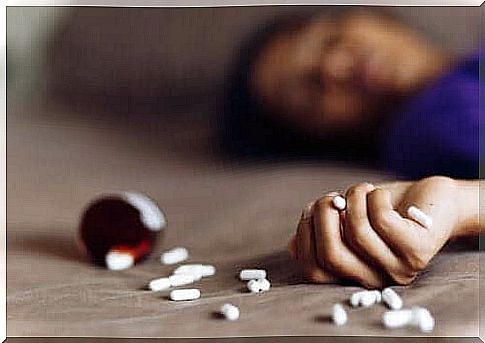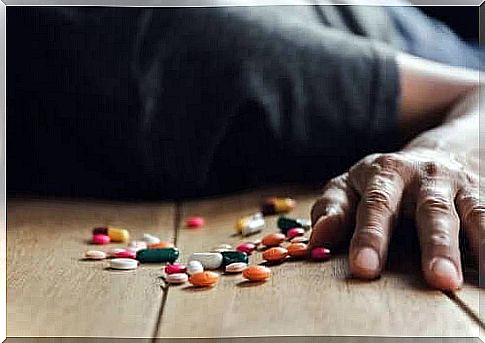What Should We Do With A Drug Poisoning?

The symptoms and consequences of a drug poisoning depend on the medication, but they can all be equally fatal. The degree of intoxication depends, among other things, on the amount of medicine taken and on the characteristics of each person.
Furthermore, we look at the different types of poisoning as well as some indications for identifying it and the immediate measures that must be followed.
Five types of drug poisoning

There are five types of drug poisoning based on different factors, and these depend on:
1. The extent of the clinical complications
When it comes to drug poisoning, the complications vary from mild to moderate and severe.
2. The properties of a drug poisoning
The symptoms of a drug poisoning can be immediate or delayed as some medications work quickly while others appear after a certain time.
- Reversible or irreversible poisoning: In the case of reversible poisoning, the person can recover as soon as the substance is removed from the body. However, the damage is irreparable in the opposite scenario. It all depends on the affected organ and its function. Reversible and irreversible symptoms can occur simultaneously.
- Local or systemic poisoning: Local poisoning occurs when the toxic substance causes damage in the same place as it comes in contact with the body. However, there are some substances that can affect the body in a systemic or generalized way. However, a combination of both can occur.
3. The time the symptoms appear
Depending on how long it takes for symptoms to appear, we can classify poisoning into the following categories:
- Acute poisoning: In these cases, the symptoms appear in less than 24 hours and the development may vary
- Subacute poisoning: These disorders occur at different levels, and the symptoms do not occur immediately, but appear after several days.
- Chronic poisoning: These occur after continuous or repeated absorption of a toxic substance. It can be absorbed in small amounts, but accumulates in the body. This is the most difficult type of drug poisoning to treat.
4. The cause
When we take into account how a drug poisoning occurs, we can divide it into:
- Voluntary: These are intentional poisonings, such as suicide.
- Random: These happen quite often when it comes to medications. They are caused by a mixture of drugs, overdose or interaction with other medications or drugs, such as alcohol.
This is how it gets into the body
We can classify the poisonings depending on how the drug got into the body. It can be inhaled, drawn in through the skin and mucous membranes, or intravenously.
Signs of drug poisoning

- Dizziness and headache are common symptoms in patients affected by drug poisoning. However, there may be other clinical reasons.
- The symptoms of drug poisoning will depend on the type of medicine involved, how it is taken and the characteristics of each person. Thus, the consequences will also vary and can in some cases be fatal.
Symptoms of drug poisoning
These are some of the first signs or symptoms, and they can be common and non-specific:
- Dizziness, headache and confusion
- Drowsiness or hyperactivity and difficulty moving
- Decreased heart and respiratory rate
- Nausea and vomiting
- Visual and linguistic changes
- Diarrhea, abdominal pain
- Burns and / or redness of the lips and mouth, together with skin rash in some cases
What should I do when someone has a drug poisoning?
You need to act quickly and be calm if you suspect that a person is suffering from drug poisoning.
It may take time for the symptoms of poisoning to appear. If you suspect intoxication, do not wait until the first symptoms appear.
The first step you need to take is to call your local toxicology center immediately. A doctor will answer and you can explain the situation, the symptoms and suspected medication along with other details they ask for in order to help you.
If you are familiar with the medicine that led to the poisoning, they can tell you what steps to take. If necessary, they will ask you to call the emergency services.
In the meantime, you can examine and monitor the affected person’s airways, breathing and heart rate. Do not induce vomiting unless directed to do so by healthcare professionals.
Conclusion
In case of potential drug poisoning, the first aid you give before a medical professional arrives can save the person’s life. Remember that you must always do this under the guidance of a doctor.









